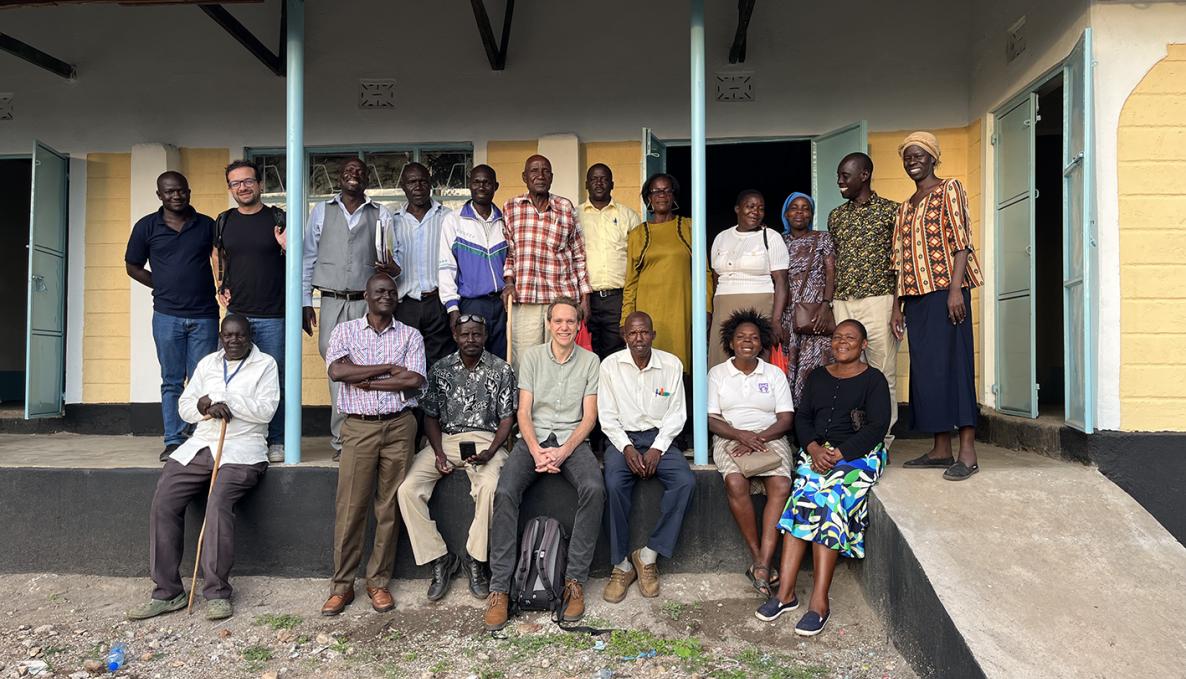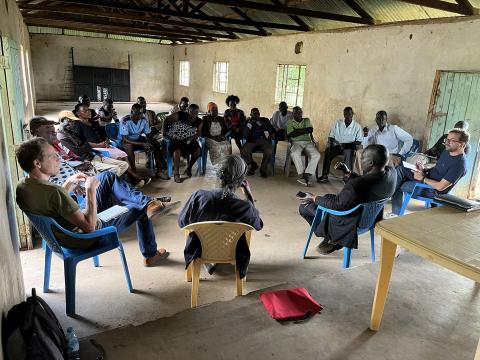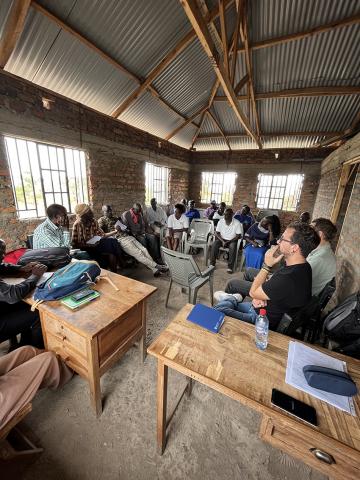Access to energy: the SuM Lab of the Institute of Management participates in Kenya in the research activities of the LEAP-RE project, which aims to introduce geothermal-based stand-alone electric and thermal energy systems to off-grid African communities

Focus groups, interviews and data collection to introduce geothermal-based stand-alone electric and thermal energy systems to off-grid African communities. The SuM Laboratory of the Institute of Management of the Scuola Superiore Sant'Anna participated in Kenya, in the Homa Hills area on Lake Victoria, in the research activities within the Geothermal Village project, one of the initiatives of the European project LEAP-RE, funded by the European Commission under the Horizon2020. The project is part of the strategic initiatives of Africa Connect, the transversal research and training activities with which the Scuola Superiore Sant'Anna contributes to the inclusive and sustainable development of the enormous potential of the African continent. Fabio Iannone, research fellow at the Institute of Management, represented the SuM research group in the research activities in Kenya.
Commitment to clean and affordable energy
Goal 7 of Agenda 2030 is to ensure access for all to affordable, reliable, sustainable and modern energy systems. This is also the main aim of LEAP-RE and the research activities in Kenya. On the shores of Lake Victoria live mainly rural populations, who conduct subsistence activities such as agriculture, pastoralism, fishing and cotton cultivation. The development of geothermal energy in these territories would make it possible to meet the most basic needs, such as access to electricity (precluded to the majority due to lack of infrastructure or poverty) and drinking water. This would, indirectly, increase the efficiency and effectiveness of other necessary services, such as health, education and security, and consequently pursue some of the Sustainable Development Goals set by the United Nations in the 2030 Agenda: not only Goal 7, but also Goal 3 (Ensure health and well-being for all and all ages) and Goal 4 (Provide quality, equitable and inclusive education, promote lifelong learning opportunities for all).
The main objective of this field trip in the Homa Hills, in addition to increasing knowledge and awareness of the project, was to understand what are the social needs and expectations that the Geothermal Village project should respond to. Five focus group discussions in five different locations were held, as well as in-depth interviews with members of the local communities, the Geothermal Community-Based Organization and the representatives of different types of stakeholders potentially benefiting from or affected by the project. This fieldwork will be followed by a second phase of interviews with private counterparts.
This first data collection step, which will be repeated in Djibouti and Rwanda (and hopefully in Ethiopia) will make it possible to structure a Geothermal Village management model capable of maximizing the social, economic and environmental benefits of the project. This comes in addition to previous field trips in the region to sample geothermal waters, gas and rocks and in the subsurface imaging below the geothermal springs.
"Africa is the part of the world where the problem of access to energy takes on primary relevance and urgency - explains Marco Frey - professor at the Institute of Management and project coordinator for the Scuola Sant'Anna. 'More than 600 million Africans do not have access to energy, and finding solutions to enable even the most isolated communities to have access to a resource that is essential for development and wellbeing is a priority of global sustainable development strategies. Moreover, these contexts are ideal for developing community-based modalities, such as energy communities, to increase the self-sufficiency and awareness of local populations on the sustainable use of energy, in all its dimensions (economic, social and environmental)'.
"This project - concludes Eleonora Annunziata, associate professor at the Institute of Management, "will offer the possibility of analysing different models for fostering the use of renewable energy sources in rural communities by integrating technical skills with economic-management skills.





